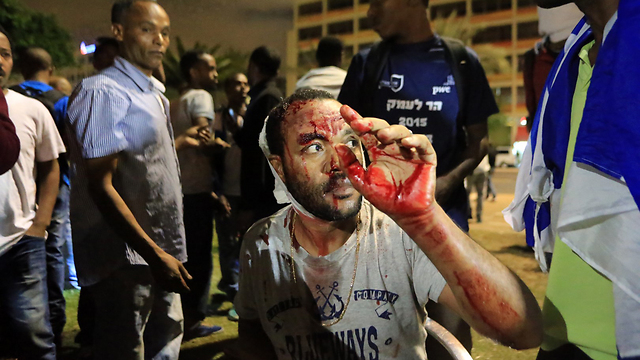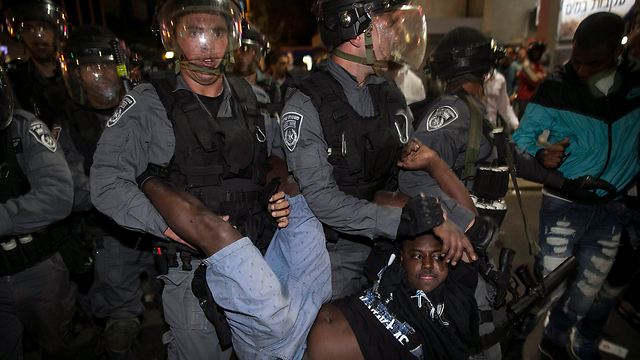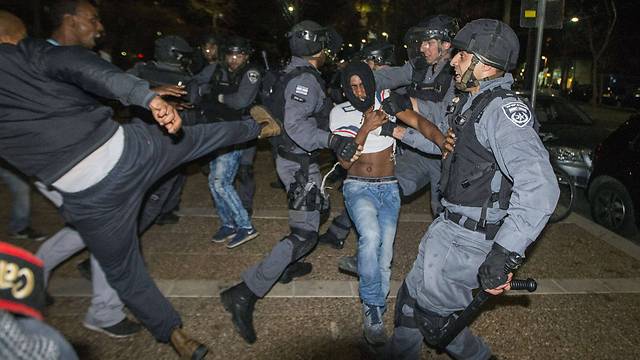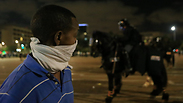
C’tee on Ethiopian rights: ‘Discrimination remains’
Ten months after an inquiry committee was established for the treatment of Ethiopians in Israel in wake of mass demonstrations, members of the committee are also divided on how to implement its recommendations; Committee Chairperson Emi Palmor says that the state has taken responsibility for the phenomenon of racism and that the friction with the police is moderating.
A committee that was established to examine forms of discrimination in the lives of the Israeli Ethiopian community following a string of mass protests in 2015 has released its conclusions that discrimination remains rampant and that the ‘road to change is long.’
Thousands of members of the Ethiopian community in Israel took part in violent demonstrations during May 2015 that re-raised the issue of racial bias. Two years and one report later, opinions are still divided regarding the change, if any, with regard to the relations between the state and the police towards members of the community. The majority can only agree on one thing: the road to equality and real change is still long and full of hurdles.
That protest was the culmination of decades in which members of the Ethiopian community in Israel sought to bring claims of racism to the public's attention. The members of the community, who until then had been considered "nice," decided to take to the streets and blocked Ayalon.
The final straw that broke the camel's back was a video in which a police officer from the Ayalon area was seen beating the soldier Damas Pakada (who has since become an IDF officer) for no apparent reason.
The incident served as the main impetus behind the mass outburst, in which members of the community vented their anger at social rejection, false arrests, and police records for many young members of the community.
The result of the demonstrations was the establishment of a commission of inquiry headed by the director general of the Justice Ministry, attorney Emi Palmor.
The committee examined the community's claims of continuous discrimination in all areas of life due to their skin color. According to its conclusions, which were submitted in July 2016, the claims of the community were valid, particularly when it came to the matter of the police's over-policing policy. The committee also made 53 practical recommendations for rectifying the situation.
"The report was an opportunity for national and institutional soul-searching, to take a look inside and try to understand what went wrong after decades of immigration and the investment of hundreds of millions of shekels, and how things could be rectified," Palmor told Ynet this week. "The first thing that changed was the recognition and assumption of government responsibility for the existence of institutional racism."
The responsibility, as Palmor called it, includes a series of activities in a variety of offices (the main ones being: health, education, culture and sports, justice, internal security) of implementing the recommendations of the government's team to eradicate racism.
"In the Ministry of Justice, attorney Aweke Kobi Zena was chosen to head the Anti-Racism coordination Unit, a unit whose task it is to receive complaints and ensure that they are properly handled, to monitor the implementation of all decisions (including changes in legal guidelines, new police procedures, etc.) and advance recommendations dealing with the positive presence of Ethiopian immigrants in the public sphere. It is clear that in the past year, decisions have been made in the judicial system that attest to the internalization of the findings and recommendations of the report, civil and criminal."
On the issue of the relations between the police and the community, Palmor also claims that things have somewhat calmed down. "It can be unequivocally said that the unbearable friction between the police and members of the community is changing, moderating," she said.
"The story of the heroism of Ethiopian Jewry making their way to Israel is also penetrating the public consciousness and the education system. This is the beginning of a process that started with the community's tremendous protest, and it requires civil and institutional monitoring and patience to ensure that it continues until it brings about the desired change in the daily lives of Ethiopian Israeli citizens," he said.
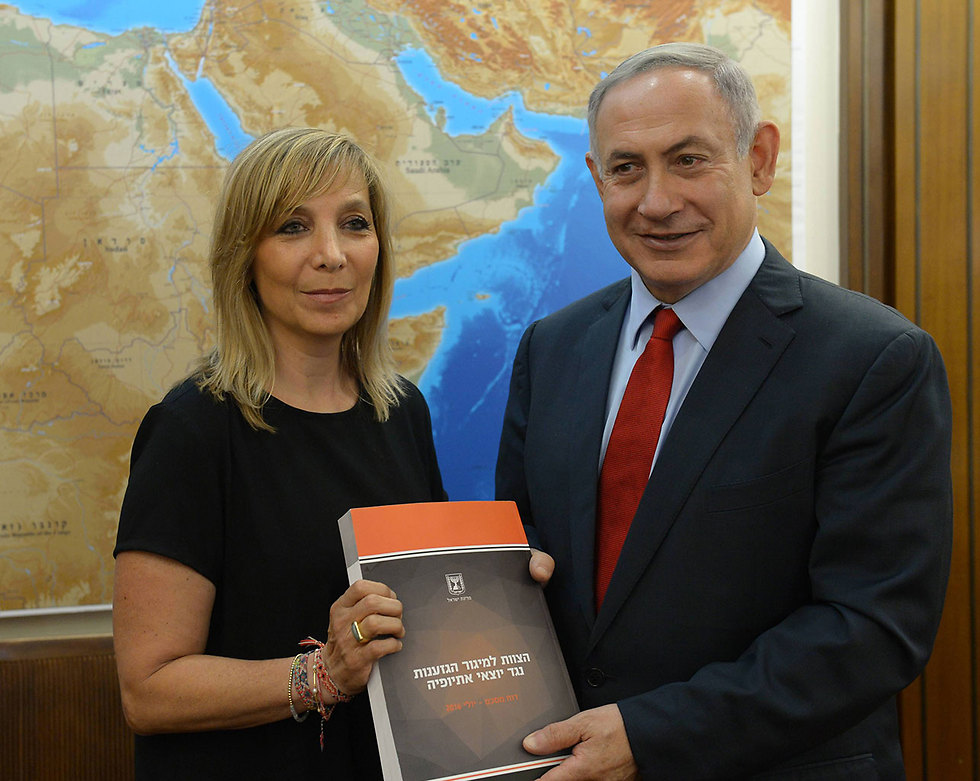
The Ethiopian community is still suspicious, however. On the one hand, they say that the police had indeed learned a lesson, but on the other, they argue that the police may have simply become more ingenious in the knowledge that everything is documented.
Avi Yalau, a social activist and member of the Palmor Committee, believes that the great achievement is the very recognition of the problems of the community and the resulting racism. "Even in a decade from now, the issue of racism will continue to accompany us... This will not be resolved anytime soon, which is why the struggle isn't over, but has only just begun."
(Translated and edited by N. Elias)










